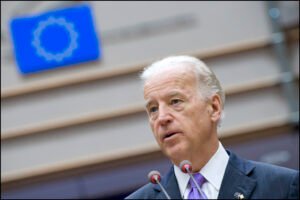
Why the Iran nuclear deal failed
- The U.S. State Department has made it clear that bringing back the 2015 Iran nuclear deal isn’t on their current agenda.
- Iran’s new foreign minister believes the deal needs changes because some parts have expired, and the global situation has shifted.
- The U.S. is still focused on stopping Iran from developing nuclear weapons and thinks diplomacy is the best way forward.
- However, the upcoming U.S. presidential election and ongoing conflicts in Ukraine and Gaza make the situation even more complicated.
The Biden administration has confirmed that reviving the Iran nuclear deal is not currently on the agenda, according to a U.S. State Department spokesperson on August 26. This comes as Tehran has called for “new negotiations” to update the agreement before it can be revived.
Iran’s new foreign minister, Abbas Araqchi, recently stated that the deal “cannot be revived in its current form” due to expired sunset clauses, emphasizing the need for new discussions to bring the agreement back to life. However, a State Department spokesperson clarified that the Joint Comprehensive Plan of Action (JCPOA), the formal name for the 2015 nuclear accord, “is not on the table right now.” The U.S. had exited the deal in 2018 under former President Donald Trump.
The spokesperson further emphasized that the U.S. will take all necessary measures to ensure Iran never acquires a nuclear weapon, using every element of national power to achieve that goal.

Washington still sees “diplomacy as the best way to achieve a sustainable, effective solution,” a spokesperson said. In a televised interview, Iran’s foreign minister Abbas Araqchi admitted that renegotiating the deal would be difficult.
“This document needs to be reopened and parts of it need to be changed. But once you reopen a document, putting it back together will be challenging,” Araqchi said.
The upcoming U.S. presidential election and ongoing wars in Ukraine and Gaza complicate the situation further. Araqchi noted that the Ukraine war has “deeply impacted how Europeans view security,” while the Gaza conflict has “completely upended the situation in the region.”
Araqchi, a key figure in the original 2015 deal between Iran and six major world powers, argued that the current format of talks to revive the agreement, in place since 2021, is no longer effective. “New negotiations are needed,” he added.
The 2015 deal restricted Iran’s nuclear program and capped uranium enrichment at 3.67 percent in exchange for the lifting of U.S. sanctions that had crippled Iran’s economy and energy sectors. However, in 2018, President Trump withdrew the U.S. from the agreement and reinstated the sanctions. In response, Iran gradually reduced its commitments to the deal and is now enriching uranium at 60 percent.
Araqchi led Iran’s negotiating team when Tehran and Washington began indirect talks in April 2021 to restore the agreement. Negotiations paused after the election of hard-line President Ebrahim Raisi in Iran and the subsequent nationwide protests that erupted in September 2022.
Iran’s new president, Masud Pezeshkian, who took office after Raisi’s death in a helicopter crash earlier this year, has promised to engage with the West. However, the ultimate decision-maker in Iran remains Supreme Leader Ayatollah Ali Khamenei, who supports conservative efforts to expand the country’s nuclear program.




